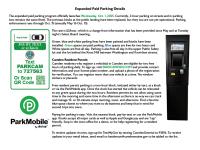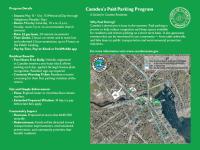Montgomery Dam is a literal wall in an ecosystem
We are edging ever-closer to June 10, which means this chapter of the Montgomery Dam saga will be coming to an end. For that, I imagine there is much gratitude–it has become a volatile subject with neighbors and friends unravelling into mortal enemies. A reality I am saddened to witness. We will all wake up on June 11 still members of this community, still faced with all of the other things we will need to work together on. Still neighbors–hopefully still capable of being friends or mending fractured friendships.
As a member of the Megunticook River Citizens Advisory Committee, I am fiercely in support of a “yes” vote on Article 7. While I could quote the collective and comprehensive bank of information that makes this the logical choice, I am more intrigued by the emotional drivers that help to guide our decisions. Those who want to save the dam are driven by their love for its aesthetics, and its perceived place in history. These aren’t things I can argue with. Love runs deep and isn’t easily shifted by possibilities of fish-runs or financial savings. Current and long-term costs become irrelevant. Who cares about ecosystem connectivity or flood risks, or fish runs? If you love the dam, you’ll think it’s worth keeping regardless. That’s okay in my book. We all have different drivers, and the world is better for our diversity of opinions.
I am personally driven by the chance to do something good for our planet. While receiving my undergraduate degree in environmental science, I often felt disheartened by the human impact on the world. Rainforests and reefs, wetlands and grasslands, prairies and deserts, drylands and freshwater ecosystems, arctic and polar regions — there isn't a single environment on earth that has not been negatively altered by our presence and our actions. To me, that’s a heavy burden to carry, and I find myself constantly searching for ways to change it. We have a history of unintentionally causing harm to our planet, but I believe it’s another thing entirely to know and continue all the same.
Montgomery Dam is a literal wall in an ecosystem, and as Robert Frost says:
"Something there is that does not love a wall
That sends the frozen-ground-swell under it,
And spills the upper boulders in the sun;
And makes gaps even two can pass abreast."
While we can build it and build it again, nature will continue to do her best to break it away and push it aside so that water can flow freely, fish can swim back to the home of their ancestors, and all the things that a river wants to be can be again. We can't keep existing on this planet in a manner that is at odds with its own well-being. We have made some wrong choices in the past, and there's no question we will unknowingly do it again. I am compelled by the opportunity to do something good for this beautiful earth, to make a change that will have measurable and observable benefits within our own lifetimes. I’m excited by the rare gift to watch an ecosystem mend and recover and flourish before our eyes.
I know the topic is tough, the information overwhelming, the emotions strong. But when we strip away all the noise and chatter, choosing the environment over self isn't a choice I think we’ll regret. It feels good to do good. This is our chance. I urge you to vote “yes” on Article 7.
Ellen Reynolds lives in Rockport





















